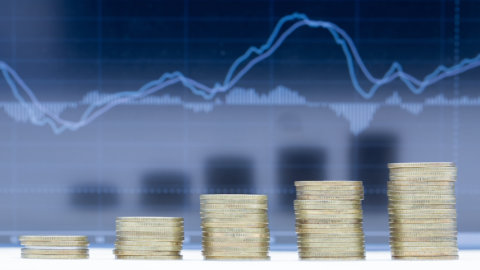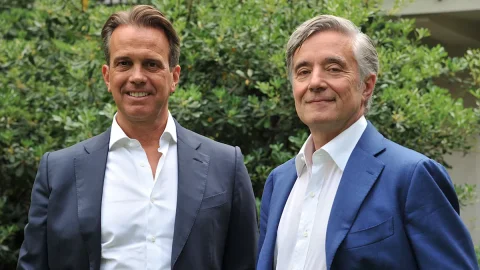Ready go. Today starts the two-day meeting of the select committee of the Japanese central bank which is responsible for the choices of monetary policy. It is not just any event because, after the long season of cheap money, Tokyo is also preparing to change course by decreeing theat the end of a long emergency season. And the markets adjust: the Nikkei index, led by electronics firms, hit an eight-month high this morning on optimistic earnings and rising government subsidies for chip manufacturing.
Japan towards a change in monetary policy
Kazuo Ueda, the new governor of the Bank of Japan, is actually doing everything to cool down market expectations who smell an air of change in the monetary policy of the Rising Sun, the homeland of sub-zero rates that have marked the management of Haruhiko Kuroda for seven years, former right-hand man of Shinzo Abe, the former prime minister who was the victim of an attack. “I see no reason to change policy – declared Ueda, a former fellow student of Mario Draghi in the USA, on the eve of the first Boj summit scheduled for Thursday and Friday. “At the moment – he explained in Parliament – the inflation trend is less than 2%. So it makes sense maintain monetary easing".
Buffett heads to Japan
An answer that does not prevent the most experienced marpioni of world finance from setting course for Kabuto-cho, the Tokyo Stock Exchange neglected for years because it was considered little more than a branch of the central bank which, by dint of buying securities, now controls almost the 75% of the market. Almost suddenly, the Japanese stock market unexpectedly entered the radar of Berkshire Hathaway, the conglomerate of Warren Buffett which strengthened the controlled stake in the big five trading companies of the Rising Sun.
Not only. The "wise man of Omaha" went to Japan in person in view of new business opportunities. As has already happened. But not often, in the past because Buffett's big deals outside the United States can be counted on the fingers of one hand: Byd, the Chinese electric car giant, the Korean steel post, the French Sanofi rather than the British Tesco or the reinsurance giants Munich Re and Swiss Re.
This time it's up to Japanand according to the rule of thumb: "better to buy an excellent company at a good price than a good company at an excellent price". That is, at the moment the Tokyo price list has coupons titles at an attractive price. For heaven's sake, it's not said that Buffett is necessarily right, also because the index is sailing at an eight-month high.
Citadel and Capital Advisors are also betting on Japan
But it is a fact that Buffett's lunge is not isolated. Last week he opened a shop in Ginza, in the heart of the City, ithe Citadel fund by Ken Griffin, the manager who broke Wall Street with his stellar performance in 2022: 16 billion dollars. And there is no two without three. The chronicles report the return to Japan of Stephen Cohen, no less legendary manager of Capital Advisors, owner of the New York Mets (baseball), survived an insider trading investigation after billionaire penalties. He, who in the past closed the Tokyo branch due to disappointing results, has decided to retrace his steps.
Why? Let's go back to the words of the new governor Ueda." At the moment – he said in Parliament – I cannot say how the exit strategy will be initiated”.
In essence, the change of pace will take place when bad inflation imported with energy prices, will have given way to a "good" inflation linked to the increase in demand. That is, iThe process is likely to be long and fraught with difficulties, also because the carry trade strategies based on low-interest yen loans to support purchases of shares and bonds in the US and the Eurozone are well established.
Japan wants to restart
But Prime Minister Kishida's choice to put Japan back in a position to restart is now a done deal. The Rising Sun, held back by the globalization crisis and by the increasingly conflictual confrontation with China, will have to focus less on the contribution of exports, but count more on the expansion of domestic consumption. Because of this the government pushed businesses, swollen with liquidity collected at low cost, to significantly increase wages starting from the most important companies, from Toyota at Uniqlo, anticipating the union demands themselves. It is no coincidence that the first real test for the increase in market rates is expected in the summer, when it will be understood whether the turnaround in payrolls will have convinced the Japanese to get out of the climate of distrust that plagues the country, victim of deflation, from a generation. And, of course, see if the fabric of small businesses can keep up.
In the eyes of Western investors the tokyo finance bet (and not only) is accompanied above all by another phenomenon: de-dollarization, which is the belief shared by the majority of managers interviewed in a survey by Bloomberg for which within ten years the dollar will account less than 50 percent of world reserves. It may be that the trend will accelerate, as the Brazilian president Lula hopes, who in Shanghai called for an end to the hegemony of the dollar. Or, as happened in the early XNUMXs, the greenback will recover. In the meantime, though, why not place a chip on Japanese currency that looks set to rise along with the inevitable rise in rates? Japan, among other things home to one of the strongest gaming industries on the planet, justifies the bet.





